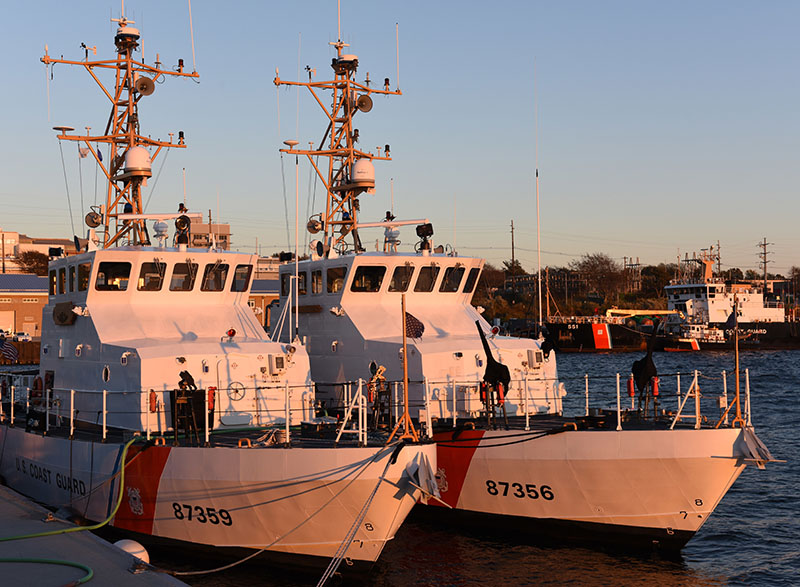New presidents and their administrations often bring an opportunity to take a fresh look at existing government institutions.
President Trump has taken aim at many federal agencies, promising to eliminate some (EPA), pull back the reach of others (Education Department), and give a few more money and power (Defense).
He hasn't said a peep about the U.S. Coast Guard, which currently operates as part of the Department of Homeland Security. But in some quarters within the Coast Guard and Congress, there is a growing sense that now is the time to revive an old discussion: Should the Coast Guard move in with their military brethren over at the Defense Department?
By law, the Coast Guard is a military, regulatory and law enforcement agency. It has been bounced between four cabinet departments over the past century: Treasury, Navy, Transportation and now DHS (also home to border control and Transportation Security Administration agents).
The main argument emerging for a move is that the Coast Guard should finally get its due as the nation's fifth military service and be on equal footing with the Army, Navy, Air Force and Marines. Proponents of this view argue that the Coast Guard's budget has been squeezed at DHS, its military mission has been overlooked, and it has been refashioned as a law enforcement agency.
Rep, Duncan Hunter, R-Calif., a former Marine and current chairman of the House Coast Guard and Maritime Transportation subcommittee, wants to change that. He believes that the Coast Guard "is a military organization that deserves its place — with word, respect and funding — among the rest of America's military under the command of the Department of Defense."
Hunter detailed this position in a commentary published in Defense News on Feb. 13. Acknowledging that the challenges facing the Coast Guard — readiness shortfalls, inadequate budgets for maintenance and repairs of equipment — are similar to those facing the Marine Corps, Hunter argues that the Coast Guard has most of all been missing a patron.
The Coast Guard has lacked "any real advocate outside its own ranks and was routinely rolled by the two previous secretaries of DHS and Office of Management and Budget who viewed the Coast Guard budget more as a nuisance and even a source for reach-back funding for other programs."
Hunter places most of the blame on "eight years of the Obama administration and its failures in prioritization" pointing specifically to the lagging progress on building a new polar icebreaker.
Support for a move is coming from other quarters as well.
In the February issue of the U.S. Naval Institute's Proceedings magazine, Jim Dolbow, editor of the Coast Guardsman's Manual and a former member of the U.S. Naval Institute editorial board, and Jim Howe, a retired Coast Guard captain, built a complementary case.
"The Coast Guard's culture, worldview, operational focus, training regimes, maintenance programs and work ethos are similar to those of the DoD services but markedly different from those at Transportation Security Agency, Immigration and Citizenship Services, and Federal Emergency Management Agency," they wrote.
Among the benefits: stability of having the Coast Guard under DOD during wartime without need of a "disruptive transfer" to defense; opportunities to keep the Coast Guard's "warrior edge" sharp that would also enhance its homeland security and maritime enforcement missions; a stronger chance to achieve budgets that actually reflect expanding missions; and better access to technological innovations and well-established logistics, command-and-control, research and development and acquisition programs and expertise.
The writers dismissed critics that argue that the Coast Guard is too small to survive at DOD, would be smothered by the Navy, and that the service's civilian missions have no place within the military.
The Posse Comitatus Act, an 1878 law that prohibits the Defense Department from engaging in civilian law enforcement, wouldn't be an issue, Dolbow and Howe say because Congress could keep the current prohibitions on military services intact, but exclude the Coast Guard in the transfer legislation.
So, what do you think? Would this be a good move for the Coast Guard? Are their missions compatible with DOD? Should some Coast Guard roles be farmed out to other agencies? Would your relationship with the Coast Guard change?




